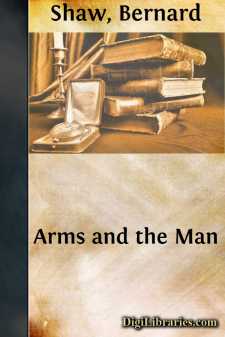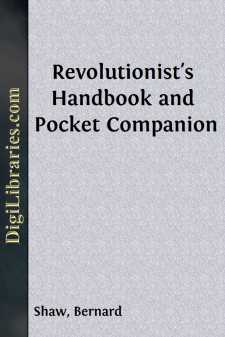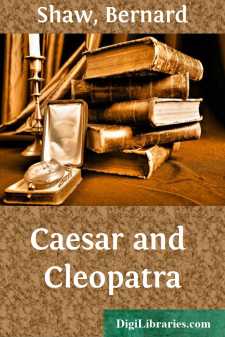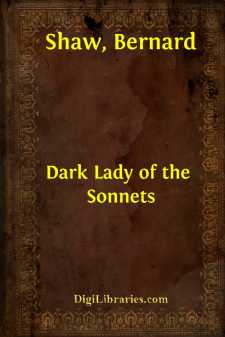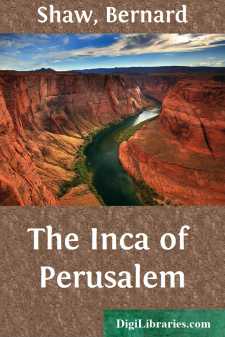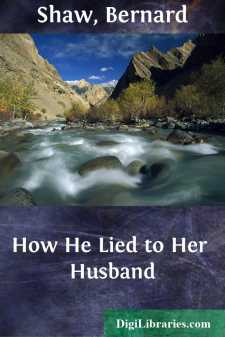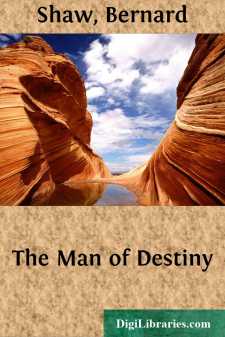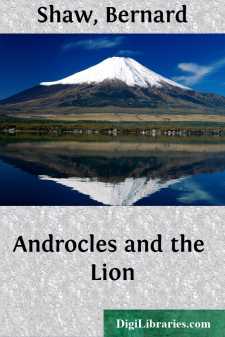Categories
- Antiques & Collectibles 13
- Architecture 36
- Art 48
- Bibles 22
- Biography & Autobiography 813
- Body, Mind & Spirit 142
- Business & Economics 28
- Children's Books 17
- Children's Fiction 14
- Computers 4
- Cooking 94
- Crafts & Hobbies 4
- Drama 346
- Education 46
- Family & Relationships 57
- Fiction 11829
- Games 19
- Gardening 17
- Health & Fitness 34
- History 1377
- House & Home 1
- Humor 147
- Juvenile Fiction 1873
- Juvenile Nonfiction 202
- Language Arts & Disciplines 88
- Law 16
- Literary Collections 686
- Literary Criticism 179
- Mathematics 13
- Medical 41
- Music 40
- Nature 179
- Non-Classifiable 1768
- Performing Arts 7
- Periodicals 1453
- Philosophy 64
- Photography 2
- Poetry 896
- Political Science 203
- Psychology 42
- Reference 154
- Religion 513
- Science 126
- Self-Help 84
- Social Science 81
- Sports & Recreation 34
- Study Aids 3
- Technology & Engineering 59
- Transportation 23
- Travel 463
- True Crime 29
Sort by:
by:
Bernard Shaw
INTRODUCTION To the irreverent—and which of us will claim entire exemption from that comfortable classification?—there is something very amusing in the attitude of the orthodox criticism toward Bernard Shaw. He so obviously disregards all the canons and unities and other things which every well-bred dramatist is bound to respect that his work is really unworthy of serious criticism (orthodox)....
more...
by:
Bernard Shaw
FOREWORD A revolutionist is one who desires to discard the existing social order and try another. The constitution of England is revolutionary. To a Russian or Anglo-Indian bureaucrat, a general election is as much a revolution as a referendum or plebiscite in which the people fight instead of voting. The French Revolution overthrew one set of rulers and substituted another with different interests and...
more...
by:
Bernard Shaw
ACT I An October night on the Syrian border of Egypt towards the end of the XXXIII Dynasty, in the year 706 by Roman computation, afterwards reckoned by Christian computation as 48 B.C. A great radiance of silver fire, the dawn of a moonlit night, is rising in the east. The stars and the cloudless sky are our own contemporaries, nineteen and a half centuries younger than we know them; but you would not...
more...
by:
Bernard Shaw
How the Play came to be Written I had better explain why, in this little piece d'occasion, written for a performance in aid of the funds of the project for establishing a National Theatre as a memorial to Shakespear, I have identified the Dark Lady with Mistress Mary Fitton. First, let me say that I do not contend that the Dark Lady was Mary Fitton, because when the case in Mary's favor (or...
more...
by:
Bernard Shaw
PROLOGUE The tableau curtains are closed. An English archdeacon comes through them in a condition of extreme irritation. He speaks through the curtains to someone behind them. THE ARCHDEACON. Once for all, Ermyntrude, I cannot afford to maintain you in your present extravagance. [He goes to a flight of steps leading to the stalls and sits down disconsolately on the top step. A fashionably dressed lady...
more...
by:
Bernard Shaw
PREFACE Like many other works of mine, this playlet is a piece d'occasion. In 1905 it happened that Mr Arnold Daly, who was then playing the part of Napoleon in The Man of Destiny in New York, found that whilst the play was too long to take a secondary place in the evening's performance, it was too short to suffice by itself. I therefore took advantage of four days continuous rain during a...
more...
by:
Bernard Shaw
The twelfth of May, 1796, in north Italy, at Tavazzano, on the road from Lodi to Milan. The afternoon sun is blazing serenely over the plains of Lombardy, treating the Alps with respect and the anthills with indulgence, not incommoded by the basking of the swine and oxen in the villages nor hurt by its cool reception in the churches, but fiercely disdainful of two hordes of mischievous insects which...
more...
by:
Bernard Shaw
PROLOGUE Overture; forest sounds, roaring of lions, Christian hymn faintly. A jungle path. A lion's roar, a melancholy suffering roar, comes from the jungle. It is repeated nearer. The lion limps from the jungle on three legs, holding up his right forepaw, in which a huge thorn sticks. He sits down and contemplates it. He licks it. He shakes it. He tries to extract it by scraping it along the...
more...


